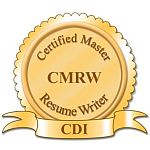Every summer in Southeastern North Carolina, we experience a proliferation of yellow butterflies.
{My ex (the organic farmer) called them cabbage lopers butterflies. I’m not sure that’s the correct species; for our purposes, yellow butterflies suffices.}
They are everywhere. I can look out the window sometimes and count twenty or thirty dancing around the yard on a summer afternoon. Now. If I were to burst out the backdoor, intent on catching all thirty butterflies, all at one time, while they flitted about, according to their own plan, with no regard for my desire to catch them, I’d probably have little success catching any of them. Pursuing them all, hoping to catch one is nearly impossible.
However. If I focus on one specific butterfly. Study its movements. Watch its patterns. Anticipate its next move. Chances are I’ll have that butterfly in hand in no time. In theory, I can catch all the butterflies in the yard; as long as I focus and do it One. At. A. Time.
This week, I’ve had several calls from people “ready” to start work on their resume. Two of the first questions I ask potential clients are, “Briefly, what are your currently doing?” and “Where do you want to go next; what’s your target position?”
The first question nets, “I work in logistics”, “I’m an engineer”, “I’m a manager”, or something equally vague. The second question usually launches an eight-minute monologue listing everything they “could” do.
During the telling of how they are, and can be all things to all people, their frustration is palpable. They applied to all kinds of jobs online. They frantically watch all sectors while attempting to tell everything, to everyone, all at once, in hopes that nothing gets away, and they’ll capture something eventually. It’s clear to me why they’re not getting interviews.
They have so much to tell, they have no idea how to whittle it down. They don’t know what to say, what to highlight, or how to present their skills in a way to intrigue a hiring authority. They’re so busy trying to catch everything; they’re not taking the time to research their target market or determine the skill set valued by each position. Target determines strategy determines presentation determines content. (Probably the reverse of what most were taught.)
For example, from my caller notes, these are the desired career paths of just two of my, “I’ll take anything callers.”
Caller A:
1. Academic Counseling
2. Corporate Training
3. Government Contract Specialist
4. Banking Industry Analyst
5. Teacher
Caller B:
1. Retail Sales
2. Administrative Assistant
3. HR Generalist
These groupings share some common core skills. However, each position values skills differently making one-size-fits-all resumes ineffective. Without focus, the resume reader has no idea how the job seekers specific skill set can benefit them and they won’t take the time to extrapolate skills from a tell-all presentation.
Without focus and strategy, these, job seekers burst out the job search backdoor expecting to catch all those butterflies at once. Rather than methodically targeting, strategizing, and focusing on one position at a time, they’re grabbing at everything; and catching nothing.
You can pursue and probably catch all the butterflies you want, but not with an “I’m-going-to-go-after-them-all-at-once” approach. Job seekers and careerist can pursue and probably land job offers in as many different sectors as their talents allow. But those talents will go undiscovered with an “I’m-all-things-to-all-people-you-figure-out-where-I-fit” approach.
As counterintuitive as it sounds, just like a narrower focus nets more butterflies; laser-sharp focus, with a clearly defined and stated value proposition nets positive job search results, much more quickly.
**No butterflies were harmed in the creation of this analogy.


 Link to this page
Link to this page













I agree with you. We must focus on whatever field we think our skills and passion lies. This will be a big help to job-hunting.
Hi Allie –
Passion and skills can lie in different fields. BUT! It’s important to be sure the message regarding that passion and skill set speaks to the potential employer. Target the position. Focus on potential employer needs. Differentiate your skill set from the rest of the pack.
Thanks for adding to the conversation.
just focus on what it get your interest and it will help you on your job-hunting
I experienced the same thing when I was still searching for a job. I was so in a hurry to work that I grab the first work that I was hired and I was only able to stay for one month because I didn’t really like the work at all. I have learned that the right decision and focus are two ingredients badly needed when trying to find your job.
Just follow your passion and you’ll surely jump into the right job. You have very well explained this in this blog. Love it very much.
Thank you so much!!! This is amazing- I feel like I have such a better idea of what to prepare to get a job!